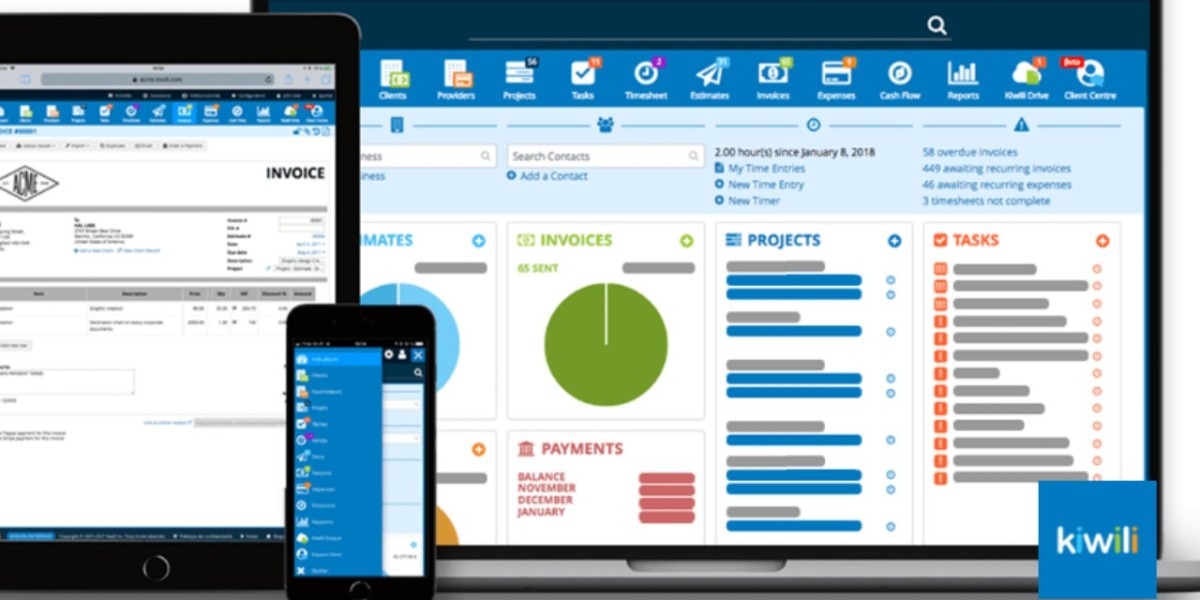What is Business Management Software?
Business management software (BMS) refers to a suite of applications or a single platform designed to help organizations run their business processes more efficiently. This type of software covers a wide range of functions, including:
- Project management
- Customer relationship management (CRM)
- Inventory management
- Human resources (HR) management
- Financial management
- Supply chain management
By integrating these functions into a single platform, businesses can eliminate redundancy, reduce errors, and improve collaboration across departments.
Key Features of Business Management Software
Choosing the right business management software depends on the specific needs of an organization. However, most BMS platforms share some common features that make them essential for modern businesses:
- Comprehensive Financial Tools
Financial management is the backbone of any business, and a good BMS platform offers tools to handle invoicing, payroll, budgeting, and financial reporting. Automating these processes helps businesses stay on top of their finances and ensures regulatory compliance.
- Project Management Capabilities
Effective project management is critical for delivering products or services on time. Business management software usually includes project tracking, task management, and collaboration tools, making it easier for teams to stay organized and meet deadlines.
- Customer Relationship Management (CRM)
Building and maintaining relationships with customers is vital to business success. Many BMS platforms feature integrated CRM systems to help businesses manage customer interactions, track sales, and analyze customer data to improve satisfaction and retention.
- Human Resources Management
From recruitment to performance tracking, BMS platforms offer comprehensive HR tools that help manage the employee lifecycle. Automated payroll processing, benefits administration, and employee performance reviews are some key functions available.
- Inventory and Supply Chain Management
For businesses that deal with physical goods, inventory and supply chain management tools are crucial. These features help businesses monitor stock levels, manage orders, and track shipments, reducing the risk of shortages or overstocking.
Benefits of Implementing Business Management Software
Integrating business management software into an organization provides a wide array of benefits, helping companies become more agile and responsive in a competitive market.
- Improved Efficiency and Productivity
By automating routine tasks and reducing manual data entry, BMS allows employees to focus on more strategic initiatives. This results in increased overall productivity and quicker project completion.
- Centralized Data for Better Decision-Making
BMS platforms centralize data across various departments, providing management with real-time insights. Access to accurate and up-to-date information enables leaders to make informed decisions that can positively impact the business.
- Cost Reduction
Business management software reduces the need for multiple standalone tools, minimizing the costs associated with purchasing and maintaining separate systems. Additionally, automation helps lower labour costs by reducing the time employees spend on repetitive tasks.
- Enhanced Collaboration and Communication
With everything in one place, team members can collaborate more effectively. Features like shared calendars, document management, and communication tools foster a more connected and cohesive workforce.
- Scalability
As businesses grow, their needs evolve. Most BMS platforms are scalable, meaning that companies can add new features or modules as they expand without needing to overhaul their systems entirely.
Choosing the Right Business Management Software
For your company, choosing the appropriate business management software can make all the difference. When considering options, it's essential to evaluate your business needs, budget, and the software's ease of use. Some of the leading business management software platforms include:
- Zoho One: A comprehensive suite of applications that cover everything from CRM to finance and HR.
- Odoo: An open-source platform that offers a wide range of business management tools.
- Monday.com: Known for its project management capabilities, Monday.com also offers tools for CRM, marketing, and operations management.
- Oracle NetSuite: A powerful cloud-based solution designed for businesses of all sizes, with tools for ERP, CRM, and eCommerce.
Conclusion
In today's competitive landscape, business management software is more than just a tool—it's a necessity for companies that want to thrive. By automating processes, enhancing communication, and centralizing data, BMS platforms help businesses operate more efficiently and make better decisions. Whether you're a small startup or a large corporation, investing in the right software can lead to significant improvements in your business operations.


